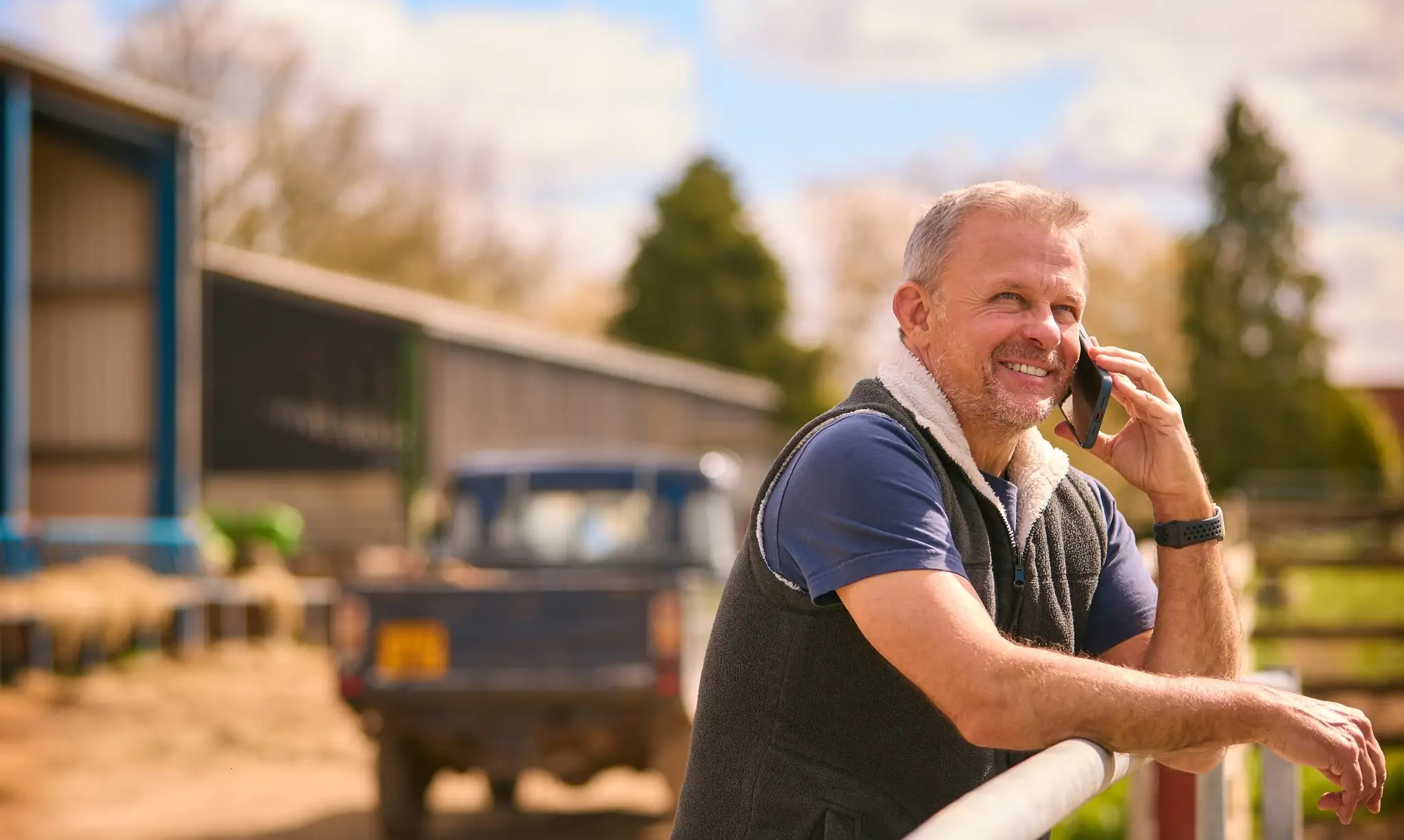When Stress Takes Over on the Farm
It’s 2:00 a.m. and you’re lying awake again. Your heart is racing, your palms are clammy, and you can’t remember the last time you ate properly. Your mind loops one thought: “I’m going to lose everything.”
The pressure feels relentless. Interest rates haven’t dropped the way you hoped. You missed contracting corn when it hit $9 a bushel, and prices have slipped. You sold your cattle just before the big boom — watching neighbors cash in while you fall further behind. The loan payment is due, and the tractor still isn’t fixed.
Over breakfast, your partner asks a simple question and you snap. Later, guilt creeps in. By mid-day, shame feels heavier: shame that you can’t get ahead, shame that you might be the one to lose what generations before you worked so hard to build.
This isn’t weakness. It’s your nervous system stuck in survival mode.
Your Mind: Automatic Negative Thoughts and Thinking Errors
Stress changes how your brain works. When your nervous system senses threat, your “thinking brain” goes offline and your “survival brain” takes over. That’s why stress makes it harder to think clearly, remember details, or make decisions.
- Automatic negative thoughts (ANTs) are snap judgments: “I’m failing,” “I’ll never catch up.”
- Intrusive thoughts are distressing, repetitive thoughts like “I’m going to lose the farm.” They’re unwanted and exhausting — but they don’t mean you’ll act on them.
Stress also fuels thinking traps, known as cognitive distortions, that make stress worse. On the farm, these often sound like:
- Overgeneralization: “Nothing ever goes right for me.”
- Discounting the Positive: “Sure, the beans are healthy, but it doesn’t matter since corn prices are down.”
- Mind-Reading: “The neighbors must think I don’t know what I’m doing.”
- Fortune-Telling: “There’s no point trying – next season will be just as bad”
Catching these thinking errors is the first step to loosening their grip.
Your Physical Health: Stress in the Body
Stress doesn’t just stay in your head — it affects your body. Farmers under chronic stress often notice:
- Racing heart, shallow breathing, or chest tightness.
- Digestive issues or stomach in knots.
- Headaches, back pain, or muscle tension.
- Poor sleep that leaves you foggy and drained.
Stress hormones like cortisol and adrenaline keep you in “high alert.” Over time, this wears down immunity, raises blood pressure, and increases the risk of illness (McEwen, 2004).
Your Family: When Pressure Spills Over
Stress doesn’t stay in the barn or field — it follows you home. It can look like:
- Snapping at your partner or kids.
- Pulling away or shutting down emotionally. (stonewalling)
- Arguments over money, succession, or decision-making.
- Communication patterns that fuel conflict — criticism, defensiveness, or contempt
Anger often shows up as a secondary emotion — masking frustration, hurt, shame, or helplessness. At its core, anger is a protective emotion — it flares up because you care deeply about your work, your family, or what’s at stake. In the moment, anger feels powerful. But when it bursts out sideways, it damages the very relationships that could provide support. Over time, chronic stress and emotional dysregulation can lead to family breakdown if left unaddressed.
The Bigger Picture: Farmer Stress in Numbers
Research confirms what many farmers already feel: stress levels are higher in agriculture than most other professions.
- In a recent Canadian study of 1,167 farmers, 76% reported moderate to high stress, and over 70% met criteria for anxiety disorder symptoms (Thompson et al., 2023).
- More than 50% identified financial strain as a top stressor, alongside workload, unpredictable weather, and market volatility (Thompson et al., 2023).
- Another 2024 study showed poor mental health impacts farmers personally, interpersonally, cognitively, and professionally, threatening both wellbeing and farm sustainability (Jones et al., 2024).
These numbers make one thing clear: you are not alone in this.
Practical Stress Resets for Farmers
Small changes can calm your nervous system without adding more to your plate.
Quick Tips: 3 Practical Ways to Ease Farm Stress
1. Body Scan While You Work
While feeding livestock or driving the tractor, notice your body from head to toe. Release tension in your shoulders, unclench your jaw, and slow your breathing.
2. Check Your Grip
Farm work is hard on the hands. Stress makes us clench without realizing it. Pause once or twice a day to loosen your fists, stretch your fingers, and roll your wrists.
3. Switch the Radio for a Story
Long hours in the truck or tractor can fuel looping thoughts. Try an audiobook, podcast, or comedy routine. Redirecting your mind breaks intrusive thought patterns and improves focus.
How Counselling Helps
Farm culture often teaches: “You just get the work done, whether you’re well or not.” That toughness gets chores finished, but it also keeps people silent and isolated.
Counselling isn’t about weakness — it’s about staying strong enough to keep going. It offers:
- Body-based tools (breathing, grounding, stretching) to calm adrenaline and cortisol.
- Mind-based strategies (CBT, mindfulness) to reframe harmful thoughts.
- Connection-based support to reduce isolation and repair family communication.
Most importantly, counselling gives you a safe place to unload the thoughts you won’t share at the kitchen table.
Final Word
Farming will always bring uncertainty. That part won’t change. But what can change is how you respond to it. With the right tools and support, you can protect your health, think more clearly, and keep your family relationships strong.
You’ve carried your farm through droughts, markets, and long seasons — you can also learn skills to carry yourself through the weight of stress. You are resilient, and with the right tools and support, you can thrive.
About the Author
Jamie McIntyre is a Masters-level Registered Social Worker and Psychotherapist, and a proud member of the Manitoba Métis Federation (Red River Métis). Based near Wardsville, Ontario, she brings lived and professional experience as a clinician, farmer, coach, frontline worker, and educator. Trained in Polyvagal-Informed Approaches, CBT, EMDR, ACT, and Narrative Therapy, Jamie also integrates holistic, land-based, and equine-assisted methods. She works with clients aged 12 and up, focusing on anxiety, depression, trauma, grief, burnout, and life transitions.

